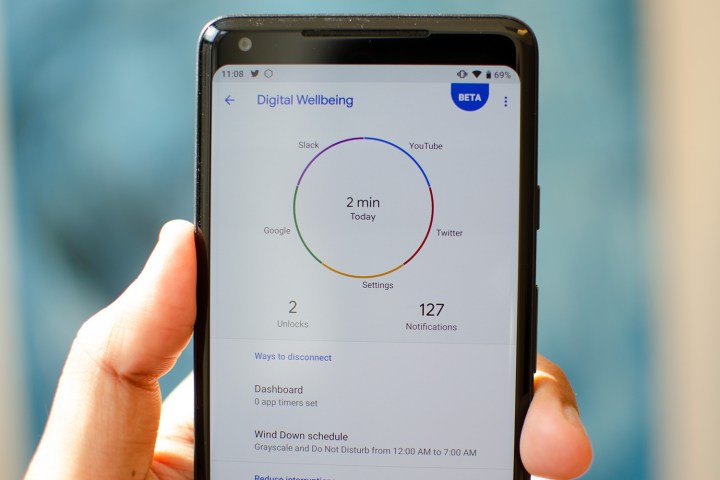According to a document acquired by XDA Developers, Google is now requiring that Android manufacturers support its Digital Wellbeing suite and the universal standard for fast charging, USB-C Power Delivery (PD), in any future Android devices.
The new requirements will apply to any manufacturer looking to use the Google Mobile Services (GMS) package — which, since GMS includes the Google Play Store and all of Google’s services, applies to pretty much every manufacturer outside of the Chinese market. While companies won’t necessarily have to worry about updating their entire backlog of phones to accommodate Google’s demands, every new Android device will be required to follow the new rule, and so will all phones updated to Android 9.0 Pie and Android 10 after September 3, 2019.

The addition of Digital Wellbeing — which includes tools to monitor screen time and app usage, and colored filters to reduce blue light exposure — shouldn’t upset anyone. However, the requirement for USB-C PD is likely to be an unwelcome one for any manufacturer packing its own method of fast charging.
USB-C PD is an open standard for fast charging, and has been included in Google’s Pixel phones since the line was introduced. However, many other manufacturers have deliberately avoided the standard, opting instead to develop their own methods for fast charging. While these proprietary methods can be faster than the speeds allowed by USB-C PD, it does mean such fast charging is limited to specific chargers — most usually the chargers that came in the box. OnePlus’ Warp Charge is particularly well known for this, but it’s certainly not alone. This new rule won’t ban proprietary charging methods — it will just mean that anyone with a USB-C PD charger will be able to fast charge their device without the manufacturer’s proprietary charger.
This hasn’t come out of nowhere, and manufacturers have likely been expecting this for some time. According to the article on XDA Developers, Google has been making recommendations that Android phones ditch proprietary charging methods and adopt the USB-C PD standard since the release of Android 7.0 Nougat in 2016. It seems Google is done sending out polite recommendations though, and is playing hardball. The message is fairly clear: Play by Google’s rules, or don’t play with Google’s ball.
